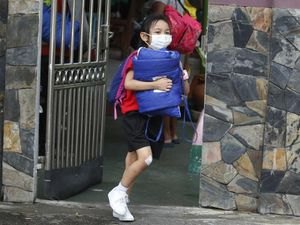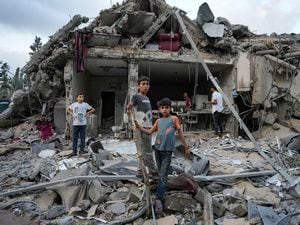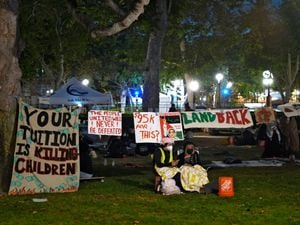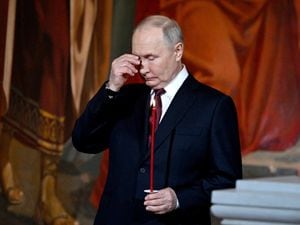Thai capital closes hundreds of schools because of air pollution
The shutdown in Bangkok will last for the rest of the week.

More than 400 schools in Thailand’s capital, Bangkok, have been shut for the rest of the week due to increasing concern over dangerously unhealthy air pollution.
The country’s prime minister Prayuth Chan-ocha directed Bangkok’s governor to order the closure of 437 schools after officials said the pollution would continue until next Monday.
They said still air and heavy traffic are causing a buildup of particles in the air.
The Pollution Control Department said the amount of especially dangerous tiny PM 2.5 particles has risen in all areas in and around Bangkok since Monday.

“We decided to eliminate the problem by closing down the schools,” said Police General Asawin Kwanmuang, the city’s governor.
“We’re afraid that it can be dangerous for the children.”
Technical colleges are included among the closed institutions but universities are still considering what to do.
Mongkolsak Lajina, the father of a five-year-old pupil, suggested that closing schools was a token gesture.
“I don’t think it will help much.
“It helps that students do not have to commute to schools,” he said.

“But we need better measures to effectively deal with this problem.”
The Public Health Ministry said people should refrain from outdoor activities and exercise, and look instead for indoor venues.
Many commuters and pedestrians have begun wearing face masks.
“These measures will help only temporarily,” said Aek Pongpairoj, a doctor living in Bangkok.
“If we want a long-lasting solution, all sectors must be involved, not just government agencies; for example, the private sector involving construction.
“There are so many construction sites and I can see that preventive measures aren’t enough.”

Pollution levels also rose elsewhere in Thailand, bringing a heavy haze to Chiang Mai and other northern areas well ahead of the annual “smoky season” that normally begins in late February, when farmers burn agricultural waste and dry weather allows airborne particles to accumulate.
Efforts to reduce the pollution level in Bangkok by hosing down roads and spraying water in the air have been criticised as ineffective.
People were asked to limit open-air burning of materials, and have even been advised to use shorter incense sticks in upcoming Lunar New Year celebrations.
Governor Asawin said he would consider declaring parts of Bangkok “pollution control zones” if they exceed safe levels for three straight days.
That could include control of diesel-engine exhausts, outdoor burning and construction activities, and possible road closings and diversions.





